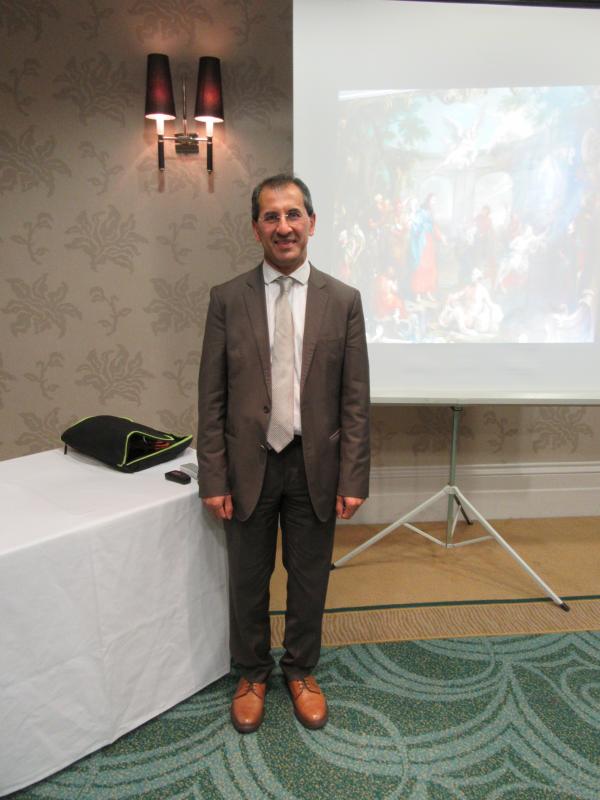Progress with Blood Cancer Treatments
Sat, Jan 12th 2019 at 9:31 am - 9:31 am
Doctor Samir Agrawai, Haematology Consultant, Researcher and Senior Lecturer at St Bartholemew's Hospital London, gives members the latest in the treatment of blood cancers

Progress With Blood Cancer Treatments
Dr Samir Agrawal is a Haematology Consultant, Researcher and Senior Lecturer in treatments and innovations for blood cancers at St Bartholemew’s London, the oldest hospital in Britain, having been established in 1123.
In a presentation to the members of The Rotary Club of South Foreland he gave an overview of the work of the hospital, which is at the cutting edge of treatments for blood cancers. His knowledge and enthusiasm in describing and explaining different types of blood cells, cancers and treatments made a specialised scientific subject accessible to his listeners. After an illustration of blood cells including lymphocytes and monocytes for response to and protection from infection, platelets to help the blood clot and prevent bleeding, as well as the role of red blood cells, Dr Agrawal went on to describe haematological cancers, of which there are an amazing number. In fact blood cancers are the 4th or 5th most common cancer, ranging from Acute Myeloid Leukaemia to some very rare cancers. Some cancers are driven by infection such as the EBV virus (glandular fever) which can cause lymphoma or the human papilomavirus which can result in cervical cancer.
For centuries cancers (apart from blood cancers) were removed by surgery. With the discovery of radium in the early 20th Century radiotherapy developed, then the 1960s saw the beginning of drugs used for cancer treatment. It is important to know what treatment to use for particular blood cancers. Through genetic investigation chromosomes are unwrapped to find abnormalities in the DNA which indicate cancer so that appropriate treatment can be given. With Acute Myeloid Leukaemia, for example, abnormalities in the genes of chromosomes 15 and 17 can be treated with a derivative of vitamin A which causes the cancer cells to become normal and then die. From a death rate of 80% in the 1980s, patients with this cancer now live much longer, thanks to the revolutionary use of vitamin A derivative as part of their treatment. However, treatment is not that simple for all cancers.
Monoclonal antibodies, known as ‘magic bullets’ are drugs that combine with cancer cells; while such drugs activate the immune system where it has failed, a side effect can be damage to internal organs. The latest development combines ‘magic bullets’ with T lymphocyte cells grown in the laboratory and then injected into the patient’s body to activate the immune system. At £100,000 per patient each year this treatment is costly and unaffordable for most health systems. In the last two years there has been a raft of new drugs; for example Ibrutinib taken daily for Chronic Lymphocytic Leukaemia. Once a death sentence, this condition can now be controlled with a tablet a day at a cost of £40,000 a year.
Supportive care for patients is important because of the high toxicity of drug treatment, so the availability of blood transfusions and antibiotics in hospital is needed. With some treatments regular low cost drugs can control the condition and patients don’t need such expensive support. The possibility of using currently low cost, safe and available drugs such as metformin, atorvastatin, aspirin or ibruprofen for cancer treatment is an area for research, though large drug companies and charities are, as yet, reluctant to pursue this.
'What We Do' Main Pages:

Contact us if your school would like to get involved with growing crocuses and helping to end Polio.
more

